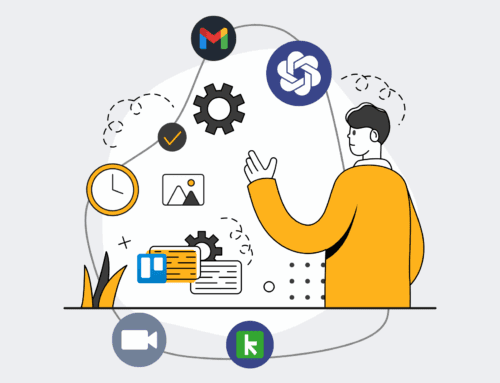Beyond Keywords: How AI Resume Parsing Identifies Top Talent
For decades, the foundation of resume screening has been a keyword matching game. Recruiters and automated systems alike have scoured documents for specific terms, hoping to unearth candidates whose experience perfectly mirrored a predefined list. Yet, this approach, while seemingly efficient, is fundamentally flawed. It misses nuance, overlooks transferable skills, and often creates more bottlenecks than it solves, leaving top talent undiscovered in a sea of applications. At 4Spot Consulting, we understand that modern recruiting demands a smarter approach.
The Flaws of Legacy Resume Screening
The traditional keyword-centric model is a blunt instrument in a world that requires precision. It struggles to understand context, synonyms, or the real-world application of skills. A candidate who “managed complex projects” might be overlooked for a role requiring “project leadership,” despite possessing the exact same capabilities. This oversimplification leads to a significant problem: a vast pool of perfectly qualified candidates is discarded simply because their resume didn’t use the exact jargon prescribed by a job description.
Beyond the semantic challenges, there’s the sheer volume. High-growth companies often face hundreds, if not thousands, of applications for a single opening. Manually sifting through these or relying on rudimentary keyword filters is an exhaustive, time-consuming process that drains valuable recruiter time. This low-value work prevents recruiting teams from engaging strategically with promising candidates or focusing on building robust talent pipelines.
Perhaps most critically, keyword matching can inadvertently perpetuate bias. If past successful hires from a specific demographic or background used certain phrasing, a keyword-based system might disproportionately favor similar language, potentially overlooking equally qualified but diverse candidates. This is a critical challenge for organizations committed to building equitable and inclusive teams.
AI’s Evolution: From Keywords to Competency Mapping
The paradigm shift lies in moving beyond simple keyword recognition to a comprehensive understanding of a candidate’s profile. This is where advanced AI resume parsing, powered by natural language processing (NLP) and machine learning, becomes a game-changer. Instead of just looking for words, AI analyzes the entire document to grasp the context, identify core competencies, and understand the depth of experience.
Modern AI parsing can dissect a resume and extrapolate not just what a candidate *says* they’ve done, but what they’ve *actually achieved*. It identifies patterns, semantic relationships, and the underlying skills demonstrated through previous roles and responsibilities. This allows it to discover “hidden gems” – candidates whose profiles might not perfectly align with every keyword but possess the core abilities and potential to excel.
Unlocking True Skill Alignment
One of the most powerful capabilities of AI parsing is its ability to map diverse experiences to specific job requirements, even when the language isn’t an exact match. For instance, an AI system can recognize that “spearheaded cross-functional initiatives” in a non-profit sector demonstrates similar leadership and collaboration skills as “managed agile development sprints” in tech. It translates varied professional narratives into a universal language of core competencies.
This intelligent mapping allows businesses to assess transferable skills more accurately, opening up talent pools that traditional methods would ignore. It helps identify individuals who have demonstrated problem-solving, adaptability, and strategic thinking in different contexts, proving they have the foundational capabilities to thrive in new environments. This approach goes beyond surface-level keywords to reveal true potential and capability.
Eliminating Bias and Enhancing Diversity
When properly designed and implemented, AI resume parsing can significantly reduce unconscious bias in the initial screening phase. By focusing on objective criteria – skills, experience, and demonstrated outcomes – rather than proxies like school names, personal details, or specific industry jargon that might inadvertently favor certain groups, AI helps level the playing field. It provides a more meritocratic approach to talent identification.
This unbiased assessment broadens the talent pool, ensuring that qualified candidates from all backgrounds are given fair consideration. For companies committed to diversity, equity, and inclusion, AI resume parsing isn’t just an efficiency tool; it’s a strategic imperative for building more representative and innovative teams. It allows for a data-driven approach to identify the best candidates, free from human predispositions.
The Strategic Advantage for HR and Recruiting Leaders
Integrating AI resume parsing into your HR and recruiting operations delivers tangible, high-impact results. It drastically reduces time-to-hire by automating the most labor-intensive part of the process, allowing recruiters to focus on what they do best: building relationships and assessing cultural fit. This shift means a higher quality of hire, as the system consistently surfaces the most relevant candidates based on objective metrics.
For HR and recruiting leaders, this is about transforming your team from administrative processors to strategic talent partners. By eliminating low-value, repetitive tasks, your high-value employees are freed to engage in more impactful work, such as proactive sourcing, candidate experience optimization, and long-term talent strategy. This is precisely the kind of operational efficiency that 4Spot Consulting helps high-growth B2B companies achieve, saving them 25% of their day through automation and AI.
Beyond efficiency, AI provides invaluable data insights. It can analyze the characteristics of your most successful hires, helping refine job descriptions and sourcing strategies. It offers a deeper understanding of your talent pipeline, allowing for more proactive and informed decision-making. Embracing AI-powered resume parsing isn’t just an upgrade; it’s a strategic repositioning for the future of talent acquisition.
The days of relying solely on keyword matching are over. The future of identifying top talent lies in leveraging AI to deeply understand resumes, uncover true potential, and build more diverse and effective teams. This is how modern recruiting truly moves beyond the noise and into impactful outcomes.
If you would like to read more, we recommend this article: Field-by-Field Change History: Unlocking Unbreakable HR & Recruiting CRM Data Integrity








